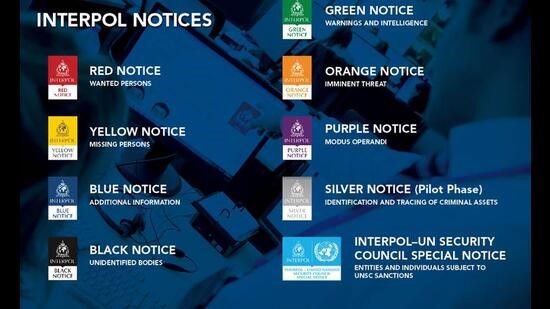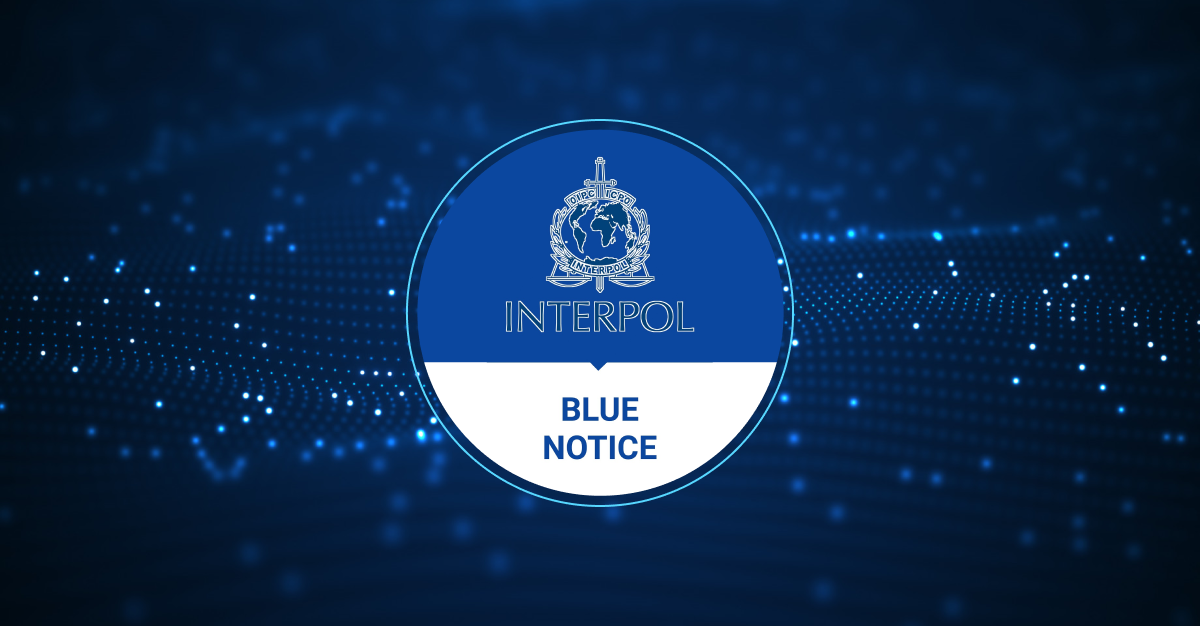India’s First INTERPOL Silver Notice

- 14 Jun 2025
In News:
In a significant development, the Central Bureau of Investigation (CBI) has secured India’s first-ever ‘Silver Notice’ from INTERPOL to track the global assets of Shubham Shokeen, a former French Embassy official implicated in a visa fraud case. This move underscores India's enhanced use of international law enforcement mechanisms to combat transnational crimes, particularly financial crimes involving asset concealment abroad.
What is a Silver Notice?
While INTERPOL is globally known for its Red Notice (to arrest or detain fugitives), the Silver Notice is a newer tool designed to help locate, identify, monitor, or seize the criminal assets of individuals or entities under investigation. Issued at the request of India’s National Central Bureau (NCB), the Silver Notice for Shokeen seeks to trace proceeds of crime potentially parked across multiple countries, marking a new phase in India’s international criminal cooperation.
About INTERPOL
INTERPOL (International Criminal Police Organization) is the world’s largest international police organization, comprising 196 member countries, with India being one of the founding members. It facilitates cross-border police cooperation and crime control across jurisdictions. Its genesis lies in the 2nd International Police Congress held in Vienna in 1923, when it was established as the International Criminal Police Commission (ICPC). It adopted the name INTERPOL in 1956 with the adoption of its Constitution during the 25th General Assembly.
- Headquarters: Lyon, France
- National Central Bureau (NCB): Each member state has an NCB that coordinates with INTERPOL. CBI serves as India’s NCB.
- Key Bodies:
- General Assembly: Supreme decision-making body; meets annually.
- Executive Committee: Supervises execution of General Assembly's decisions.
- General Secretariat: Handles operational activities on a daily basis.
INTERPOL Colour-Coded Notices
INTERPOL issues a series of colour-coded notices that serve as international alerts or cooperation requests:
- Red Notice: Request to locate and provisionally arrest a wanted person.
- Blue Notice: To collect additional information about a person’s identity, location or activities.
- Yellow Notice: For locating missing persons.
- Black Notice: To identify unidentified bodies.
- Silver Notice: To trace, monitor, and seize assets related to criminal proceeds.
These notices are issued by INTERPOL’s General Secretariat upon request from NCBs and are accessible to all member countries, enabling swift global action.
India’s Technological Integration: The BHARATPOL Portal
To streamline international cooperation, the CBI has developed the BHARATPOL portal, a digital interface that connects all Indian law enforcement agencies with INTERPOL. It allows seamless communication and data exchange for tracking fugitives, assets, and criminal networks, thereby enhancing India’s capabilities in combating cross-border financial and cyber crimes.
Significance for India
- Asset Recovery: The Silver Notice is a critical step in tracing and recovering illicit assets abroad, aligning with India’s broader efforts under anti-money laundering frameworks.
- Global Cooperation: Reflects India’s increasing reliance on international institutions for law enforcement, including the UN Convention against Corruption and FATF recommendations.
- Strengthening CBI's International Role: As India’s NCB, the CBI’s proactive role showcases its growing competence in global criminal investigations.
Blue Corner Notice

- 04 May 2024
Why is it in the News?
The Central Bureau of Investigation (CBI) is likely to issue a Blue Corner notice against absconding Janata Dal (Secular) MP Prajwal Revanna.
What is Interpol’s Colour-coded Notices?
- A Blue or a Blue Corner notice is a part of Interpol’s elaborate system of colour-coded notices, which enable countries to “share alerts and requests for information [on wanted persons/crimes] worldwide”.
- This sharing of critical crime-related information is crucial for tackling internationally spread-out criminal activities.
- There are seven types of notices — Red Notice, Yellow Notice, Blue Notice, Black Notice, Green Notice, Orange Notice, and Purple Notice. Each has a different implication.
- Red Notice: To seek the location and arrest of persons wanted for prosecution or to serve a sentence.
- Yellow Notice: To help locate missing persons, often minors, or to help identify persons who are unable to identify themselves.
- Blue Notice: To collect additional information about a person’s identity, location or activities in relation to a criminal investigation.
- Black Notice: To seek information on unidentified bodies.
- Green Notice: To provide a warning about a person’s criminal activities, where the person is considered to be a possible threat to public safety.
- Orange Notice: To warn of an event, a person, an object or a process representing a serious and imminent threat to public safety.
- Purple Notice: To seek or provide information on modus operandi, objects, devices and concealment methods used by criminals.
- These notices are issued by Interpol’s General Secretariat at the request of a member country’s Interpol National Central Bureau and are made available for all member countries.
What is Interpol?
- Interpol, or the International Criminal Police Organization, is an intergovernmental organization that facilitates global police cooperation and crime control.
- Founded in 1923, Interpol enables member countries to share data and collaborate on investigating cross-border crimes, such as terrorism, drug trafficking, cybercrime, and human trafficking.
- Interpol is composed of a network of 194 member countries, each having a National Central Bureau (NCB) that serves as the point of contact for international investigations. Key functions of Interpol include:
- Providing a secure communication system for member countries to exchange information on criminal activities.
- Facilitating operational support and assistance for member countries in managing crime-related crises and emergencies.
- Coordinating training and capacity-building initiatives to enhance the capabilities of law enforcement agencies.
- Issuing colour-coded notices (e.g., Red Notice for wanted persons) to alert member countries about international criminals and activities.
- Providing access to databases containing vital data on known criminals, fingerprints, DNA profiles, and stolen and lost travel documents.
- Interpol functions within the framework of international law and operates in accordance with the principle of neutrality, ensuring that it does not interfere in the political, military, religious, or racial affairs of member countries.
- Its main objective is to provide a platform for international police cooperation and create a safer world for all.
